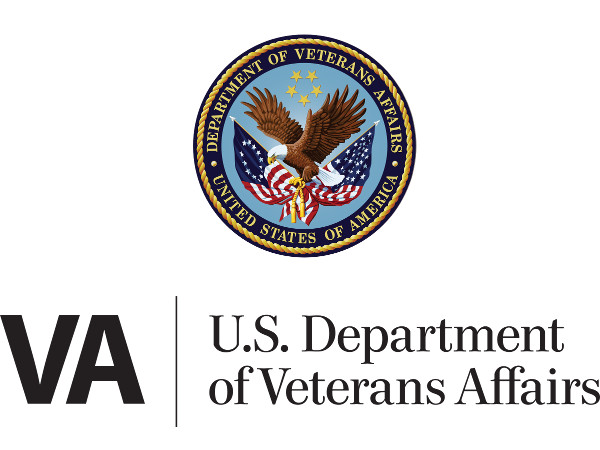One Step at a Time: The Big VA Fix Starts with … Porn?
 WASHINGTON – When the news broke about American veterans dying while waiting an unacceptably long time for health care through the Veterans Health Administration (VHA), there was universal consternation, just as there should have been.
WASHINGTON – When the news broke about American veterans dying while waiting an unacceptably long time for health care through the Veterans Health Administration (VHA), there was universal consternation, just as there should have been.
Whatever one’s feelings about the frequently interventionist orientation of U.S. foreign policy, which often puts service members in harm’s way for what seems like less-than-justified reasons, just about everybody agrees taking care of the country’s veterans ought to be a high priority for the federal government.
As is always the case when a scandal of this sort dominates the news for a few cycles, the political promises to fix the Dept. of Veterans Affairs (VA) came quickly, accompanied by great fanfare and the usual self-righteous chest beating in Congress.
One legislative response, the Veterans’ Access to Care through Choice, Accountability, and Transparency Act of 2014 (AKA the “Veterans Choice Act” or “VCA”) set forth several new measures designed to directly address the issue of veterans waiting too long to receive care. One of these measures is a provision concerning “choice cards,” which allow veterans who live more than 40 miles from the nearest VA clinic, or who can’t get an appointment at a nearby clinic in a reasonable period of time, to seek care at a non-VA facility.
The VCA also authorized funds to build more than two dozen new VA facilities, required public universities and colleges to charge in-state tuition fees to veterans and sought to shift more of the cost for veterans’ care to their private insurance plans.
While the results of the VCA have been mixed, at best, one can at least see how it is supposed to help veterans, and how some of the provisions — if executed properly — could positively impact the care veterans receive through the VHA system.
To hear certain conservatives tell it, however, what the VA really needs isn’t the sort of measures found in the VCA; what it needs is the ability to fire employees who get caught watching porn.
In the wake of an employee at the Michael DeBakey Veterans Affairs Medical Center in Houston getting caught watching porn while in the presence of a patient, there was tempest in the tea party teapot about the notion the VA’s rules kept the offending employee in place for 30 days, with pay, while the bureaucratic particulars of his removal were handled.
This didn’t sit well with the Concerned Veterans for America (CVA), a conservative veterans group that regularly stumps for cutting the budget of both the VA and the Pentagon. As the CVA sees things, getting rid of VA employees who “perform poorly or are guilty of misconduct” would go a long way toward fixing what’s wrong with the VHA.
“An employee caught watching pornography with a VA patient should be escorted out of the building immediately, never to return,” CVA Policy Director Dan Caldwell said in a statement on Friday. “The VA is forced to retain employees like this due to incredibly cumbersome and bureaucratic regulations.”
If it’s not clear to you how firing a single VA employee quickly for watching porn on the clock would in any way help address excessive waits for receiving health care, which is clearly the issue at the core of the VA’s dysfunction, welcome to the club.
This isn’t to say it ought to be a cumbersome process to get rid of VA employees who would be summarily dismissed for the same conduct if they were caught at it while working in the private sector, but to identify such firings as a major component of the fix the VA needs is absurd. It’s like saying firing some desk-jockey schmuck in the CIA’s Directorate of Intelligence who watches excessive amounts of porn is a meaningful step toward the defeat of ISIS, or asserting we’d soon have the American obesity problem licked if we could just get rid of a few lazy, porn-watching bastards at the CDC.
Luckily for the CVA, though, they may have an ideological ally in a key position: New VA Secretary David Shulkin, the only member of Trump’s cabinet to be confirmed unanimously by the Senate.
In a press release calling out the mandated delay in firing the DeBakey Medical Center employee, Shulkin called the case “an example of why we need accountability legislation as soon as possible.”
“It’s unacceptable that VA has to wait 30 days to act on a proposed removal,” Shulkin said. “Current legislation in Congress reduces the amount of time we have to wait before taking action. “I look forward to working with both the Senate and the House to ensure final legislation gives us the flexibility we need.”
As noted by Courtney O’Brien, the author of a Town Hall piece, Shulkin “still needs to address the other rampant issues at the VA — such as the dangerously long wait times.” Nonetheless, O’Brien sees the pending “VA accountability” bill as the first stage of a process that must be taken “one step at a time.”
I must say, if I were O’Brien, I wouldn’t count the ease of firing VA employee-chickens until the related legislative-egg has hatched.
If you read between the lines of the VA’s press release, there’s a clue suggesting the cherished ideal of walking employees out the front door never to return, even before the ink on their pink slip has dried, may always be more theoretical than actual. I’ve highlighted the clue in the quote below to make it easier to spot.
“VA is grateful that Congress has made employee accountability a priority,” the agency stated in its press release. “VA has been working with Congress to ensure legislation would provide VA the ability to expedite removals while still preserving an employee’s right to due process. Without these legislative changes, VA will continue to be forced to delay immediate actions to remove employees from federal service.”
We’re going to preserve their “right to due process,” eh?
Unless Shulkin and company are planning to give to-be-terminated VA employees an opportunity to appeal their firing in the middle of their security-personnel-accompanied march to the parking lot, I’d say O’Brien’s celebration of Step One is a bit premature.













